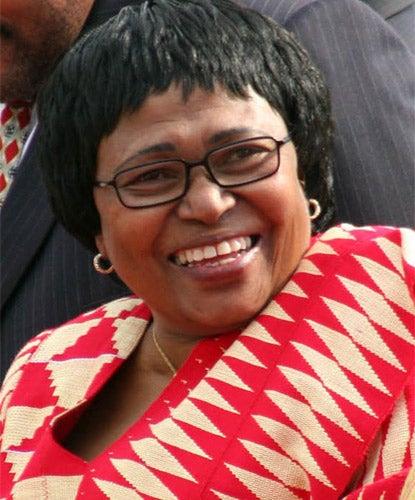Death of doctor who advocated beetroot as Aids remedy

South Africa's former health minister Manto Tshabalala-Msimang, known as "Dr Beetroot" after her dogged promotion of the vegetable, along with lemons, garlic and olive oil to treat Aids, has died aged 69.
The ruling African National Congress said Ms Tshabalala-Msimang died from complications related to a 2007 liver transplant. She had been admitted to a Johannesburg hospital last month and local media outlets said she may have been undergoing tests for a possible second transplant when she died. "We pay homage to this gallant fighter and will forever treasure the contribution she made in the struggle for liberation and the building of our democracy," the ANC said in a statement.
The minister's disastrous policies on HIV made her the most unpopular government minister in post-apartheid South Africa. She was ridiculed locally and internationally for her unorthodox views but had a loyal defender in close friend and the then President Thabo Mbeki, not least because of his own doubts about the link between HIV and Aids.
In a study by Harvard University, Ms Tshabalala-Msimang and Mr Mbeki have been blamed for not preventing over 300,000 deaths. There have been calls by some activists for them to be charged with genocide.
South Africa, a nation of about 50 million, has the world's largest number of HIV cases with some 5.7 million people infected with the virus.
Aids activists blamed the health minister for spreading confusion about the disease. They won a landmark court case against the ministry in 2002 to force it to provide pregnant women with drugs to stop them infecting their unborn child; and in 2003 to give antiretroviral therapy to people in the more advanced stages of the disease.
Reaction to her death was largely muted and sympathetic even from her harshest critics. "We don't wish ill on any human being even though we had a very difficult time with her as minister of health," Vuyiseka Dubula of the Treatment Action Campaign, a group she often clashed with, told the South African Press Association.
Ms Tshabalala-Msimang shrugged off constant calls for her resignation but was eventually replaced in 2008 after President Mbeki was ousted by the ANC. South Africa's subsequent two health ministers have won praise for turning around the government's controversial health policies.
Join our commenting forum
Join thought-provoking conversations, follow other Independent readers and see their replies
Comments